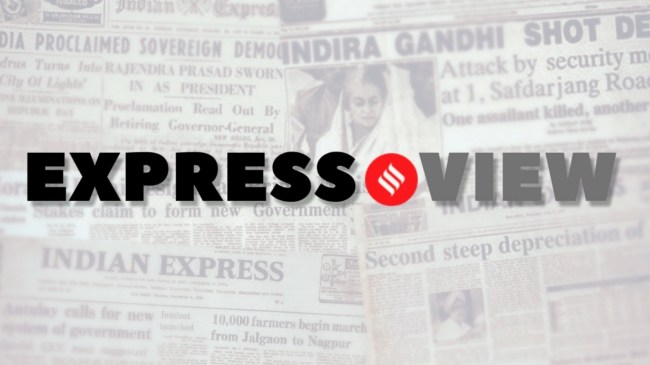Opinion The political challenges to diplomacy after Pahalgam
Indian diplomacy has a key role in ensuring that Delhi comes out on top -- politically -- at the end of this bout with Pakistan
 India’s own military response must necessarily be shaped by political judgement and diplomatic strategy. Three political challenges for Indian diplomacy stand out.
India’s own military response must necessarily be shaped by political judgement and diplomatic strategy. Three political challenges for Indian diplomacy stand out.
THAT the use of force by a sovereign can never be separated from the realm of politics is an insight India can’t ignore as public emotion runs high in demanding retribution for the horrific Pahalgam terror attack. Even as the government weighs the options, Prime Minister Narendra Modi has reportedly said that the armed forces have operational freedom to decide on the mode, targets and timing of India’s response. Pakistan Army Chief General Asim Munir’s decision to authorise the Pahalgam attack was a calculated political move. The terrorists targeted innocent tourists, and selected them by their faith. India’s own military response must necessarily be shaped by political judgement and diplomatic strategy. Three political challenges for Indian diplomacy stand out.
First is the immediate imperative of convincing the world that India is charging Pakistan with complicity in the Pahalgam attack based on facts. While much of the world has expressed shock and sorrow at the Pahalgam strike, not all of them automatically accept that Pakistan is involved. The Ministry of External Affairs is rightly reaching out to all major countries in the world, including the permanent and non-permanent members of the United Nations Security Council, explaining India’s compelling case and offering evidence of Pakistan’s involvement. Given Pakistan’s current tenure as a non-permanent member, the UNSC has already become a diplomatic battleground that will define the international narratives on Pahalgam. Delhi, along with its close partners, has been on the ball at the UNSC in the past few days to counter the games of Pakistan and China. Second, as India gets closer to the use of force, there are a growing number of countries calling for restraint. This should not be surprising and must be seen as a normal reaction of governments to any conflict in the world. Recall India telling Russia and Ukraine that “this is not an era of war”. The challenge for Indian diplomacy is to separate the formal and performative calls for restraint from the careful assessment of the political time and space that India has in pursuing the military option against Pakistan. Contrary to popular perception, the Pakistan army is no pushover and there should be no expectation that India will have a clean win in any military exchange. Ensuring international support during the testy period of military exchanges is critical.
Third is management of the inevitable international diplomatic intervention, given concerns about nuclear escalation, by the major powers as well as the UNSC in favour of de-escalation and finding the political off-ramp for the termination of the conflict. This pattern is borne out by the history of India-Pakistan conflicts, from the military crisis of 1986-87 to the 2019 Balakot attack. In these crises, Pakistan has sought to leverage the international intervention to compel India to come to the negotiating table on Kashmir. India, in turn, has used these crises to get the international community to mount pressure on Pakistan to stop cross-border terrorism. Indian diplomacy has a key role in ensuring that Delhi comes out on top — politically — at the end of this bout with Pakistan.




